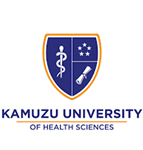 KEY PERSONNEL: Evelyn Chilemba (Co-PI), Diana Jere (Co-PI), Mike Rashid (Finance Administrator), Billy Konyani (eLearning Coordinator), Norah Lungu (Training Coordinator)
KEY PERSONNEL: Evelyn Chilemba (Co-PI), Diana Jere (Co-PI), Mike Rashid (Finance Administrator), Billy Konyani (eLearning Coordinator), Norah Lungu (Training Coordinator)
PROJECT TITLE: Enhancing HIV Education through Interprofessional Trainings (ENHEIT)
PROJECT YEAR 1 RECAP: Kamuzu University of Health Sciences trained 21 facilitators were to facilitate the HIV and COVID-19 Modules to 514 learners in a series of eight training workshops. Facilitators used innovative teaching strategies for the first time and noted enhanced capacity to promote meaningful learning among the health care professionals in an interprofessional context. There was interest in extending the training to learners. The STRIPE HIV Zoom meetings empowered facilitators to use new techniques of teaching.
PROJECT YEAR 2 SUMMARY: Kamuzu University of Health Sciences trained 12 facilitators and 588 learners, exceeding their target. Diverse cadres of pre- and post-service learners were represented, including doctors, nurses, midwives, pharmacists, and laboratorians. In response to COVID-19, workshops were adapted to a virtual format. Due to interconnectivity challenges among learners in rural areas, workshops were ultimately conducted face-to-face to reach targets.
MAIN ACCOMPLISHMENTS
- Trained 12 facilitators to facilitate workshops covering 8 modules
- Trained 588 learners
- Two ENHEIT facilitators participated in the Professor James Hakim Leadership Development Program.
- eLearning Coordinator and Training Coordinator positions were added to the team.
CHALLENGES AND SOLUTIONS
- Interconnectivity and electronics availability limited participation among learners, especially in remote districts. To address this, face-to-face trainings were held in remote districts.
- The budget did not include funds for learner transportation, printing of learning materials, and electronics such as laptops that were needed. In the future, this will be included.
TRAINING PARTNERS
- Kamuzu College of Nursing
- Malawi College of Health Sciences
- Malamulo College of Health Sciences
PARTICIPATING CINICAL SITES
The following 9 clinical sites contributed post-graduate learners. All sites are PEPFAR-supported.
- Kamuzu Central Hospital
- Lilongwe District Hospital
- Dedza District Hospital
- Ntcheu District Hospital
- Mahinga District Hospital
- Dowa District Hospital
- Ntchisi District Hospital
- Mzimba District Hospital
- Mchinji District Hospital
IMPLEMENTATION
- Training cohorts: 11
- Facilitators Trained: 12
|
Number of facilitators by cadre |
Number of facilitators |
Number of facilitators |
Number of facilitators |
||||
|
Medical |
3 |
0-5 years |
0 |
Male |
5 |
HIV educator |
4 |
|
Nursing/Midwifery |
6 |
6-10 years |
5 |
Female |
7 |
Non-HIV educator |
8 |
|
Pharmacy |
1 |
> 11 years |
7 |
Other |
0 |
||
|
Laboratory |
2 |
|
|
||||
|
Other |
0 |
|
|
||||
|
Unknown |
0 |
|
|
|
|||
- Learners trained: 588
|
Medical |
Nursing/midwifery |
Pharmacy |
Laboratory |
Other |
|
|
Preservice |
33 |
63 |
8 |
24 |
8 |
|
Postgraduate < 12 months |
74 |
207 |
11 |
16 |
10 |
|
Postgraduate > 12 months |
57 |
53 |
5 |
14 |
9 |
|
TOTAL |
164 |
323 |
24 |
50 |
27 |
INNOVATING HIV TRAINING DURING COVID-19: The COVID-19 pandemic disrupted face-to-face training sessions. In response, training sessions were adapted to eLearning formats and self-paced independent learning approaches on the LMS. Network connectivity and electronics availability limited virtual participation among learners, especially in remote districts. To address this, face-to-face trainings were held in remote districts, and precautions such as mask wearing, and social distancing were taken.
BROADER IMPACT: Kamuzu University of Health Sciences asked that faculty members be trained and module content be used during class sessions, particularly for midwifery and adult nursing courses. Facilitators have also adopted case-based teaching methods, and LMS sessions have empowered facilitators to use eLearning resources in other areas of their work. Useful topics for partner institutions include managing clients with HIV in terms of identifying the right regimen in pregnancy, those with co-morbidities, children, and those in terminal stages of the illness. Government health authorities were informed of project activities. Existing policies were used as examples in training sessions, and government health authorities were informed that capacity could be built among health care professionals through ENHEIT.







